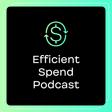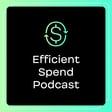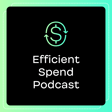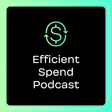
Unique Content Strategies, Organic Growth Principles, and Audience Leverage | Neal O’Grady
SUBSCRIBE TO LEARN FROM PAID MARKETING EXPERTS 🔔
The Efficient Spend Podcast helps start-ups turn media spend into revenue. Learn how the world's top marketers are managing their media mix to drive growth!
About the Host: Paul is a paid marketing leader with 7+ years of experience optimizing marketing spend at venture-backed startups. He's driven over $100 million in revenue through paid media and is passionate about helping startups deploy marketing dollars to drive growth.
About the Guest: Neal is the founder of Demand Curve, Bell Curve, and Un-ignorable. He has over a decade of experience as a serial entrepreneur and writes a weekly newsletter to nearly 96,000 founders and marketers.
VISIT OUR WEBSITE: https://www.efficientspend.com/
CONNECT WITH PAUL: https://www.linkedin.com/in/paulkovalski/
CONNECT WITH NEAL: https://www.linkedin.com/in/nealogrady/



